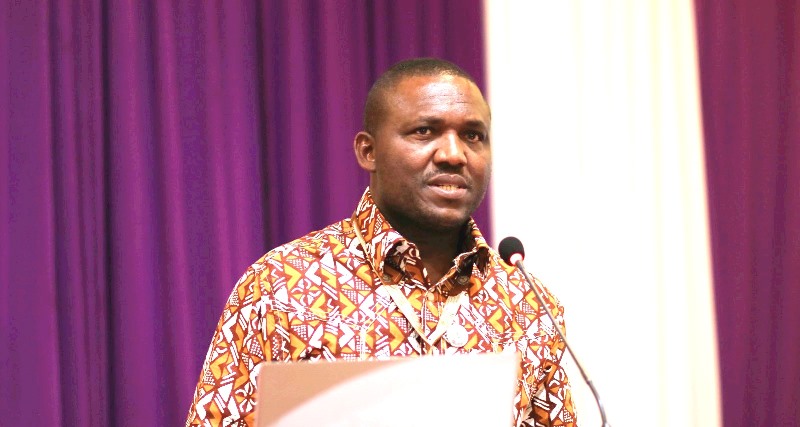
Despite being blessed with abundant natural resources, Nigeria’s economy has not translated into widespread prosperity for its citizens. Economic growth has not been evenly distributed, resulting in a significant wealth gap and some sections marginalised, writes GLORIA NWAFOR.
A pressing issue that requires urgent attention is the increase in poverty and hardship in Nigeria. Indeed, it is disheartening to witness a significant portion of the population struggling to meet basic needs and facing economic deprivation.
Nigeria’s population is estimated at over 225 million, according to Worldometer, which provides real-time world statistics.
It projected that more than half of the projected increase in global population up to 2050 would be concentrated in eight countries, Nigeria inclusive.
The National Bureau of Statistics (NBS) in its Multidimensional Poverty Index survey said about 133 million Nigerians, more than half of the population, were multidimensionally poor, while approximately 40 per cent of Nigeria’s population live below the national poverty threshold of $1.90 per day.
The dearth of marketable skills has contributed to the unemployment rate in the country and by extension the country’s economy.
Given the embargo on recruitment by the government, the unemployment rate remains high, while the poverty rate has continued to increase.
The Minister of Finance and Coordinating Minister of the Economy, Wale Edun, had said that the 84 million Nigerians living in poverty was unacceptable to President Bola Tinubu, stating that the situation makes ending poverty a priority for the administration.
Already, the suspended Minister of Humanitarian Affairs and Poverty Alleviation, Dr Betta Edu, had assured Nigerians that the year 2024 will witness a renewed vigour in tackling poverty and humanitarian crisis among the poor and vulnerable.
She had promised to commit all resources towards pulling poor Nigerians from poverty in the year 2024 in line with President Bola Tinubu’s Renewed Hope Agenda.
She said the ministry has the mandate to pull 50 million Nigerians out of poverty in the next 42 months, stating that the various social intervention schemes of the Federal Government being implemented by the ministry were already yielding positive results.
According to experts, one of the critical factors contributing to the increase in poverty is the lack of inclusive and sustainable economic growth.
They argued that the only way to tackle the challenge was for the country to prioritise inclusive economic policies that promote job creation.
These, they said, must be particularly in sectors with high potential for growth, such as agriculture, manufacturing, and technology.
They maintained that by investing in infrastructure, providing access to finance, and supporting entrepreneurship, Nigeria can generate employment opportunities and empower individuals and communities.

President of the Petroleum and Natural Gas Senior Staff Association of Nigeria (PENGASSAN), Festus Osifo, during its National Executive Council (NEC) meeting in Port Harcourt, recently, proffered a solution to addressing the poverty challenges facing the nation, stating that the reason was because economic growth has not been evenly distributed.
He said that inadequate access to education and healthcare has also exacerbated the cycle of poverty.
According to him, quality education equips individuals with the necessary skills to secure better job opportunities and creativity, thereby breaking free from the confines of poverty.
Specifically, the PENGASSAN chief noted that access to affordable and quality healthcare ensures a healthier workforce and reduces the financial burden on families.
To address these challenges, Osifo said Nigeria must invest in education and healthcare, as well as ensuring their availability and affordability to all citizens.
This, according to him, includes improving the quality of education by providing proper infrastructure, qualified teachers and relevant curricula.
He said it also entails strengthening healthcare systems and increasing the availability of essential services and medications.
Additionally, he stressed that corruption and opaque governance contributed significantly to the increase in poverty.
According to him, corruption diverts resources from essential public services and undermines trust in government, leading to a lack of implementation of effective policy frameworks and programmes to mitigate poverty.
To combat corruption and improve governance, Osifo said it was imperative to establish transparent and accountable institutions.
He proffered that strengthening anti-corruption agencies, enforcing strict penalties for corrupt practices and promoting a culture of transparency and integrity at all levels of society.
Moreover, he said that social safety nets and targeted interventions could play a crucial role in improving the lives of the most vulnerable sections of society.
He said programmes such as conditional cash transfers, school feeding programmes and vocational training initiatives can provide a temporary lifeline for those facing extreme poverty if well planned.

These programmes, according to him, must be well-designed, efficiently implemented and reach those who need them the most. The Director-General of the Nigeria Employers’ Consultative Association (NECA), Adewale-Smatt Oyerinde, said government should do all within its purview to urgently fix what it could with the short, medium and long term to reduce hardship in the country, stating that the cost of living is rising and disposal income is dwindling.
He said social safety nets and targeted interventions could play a crucial role in improving the lives of the most vulnerable sections of society.
He said programmes such as conditional cash transfers, school feeding programmes and vocational training initiatives could provide a temporary lifeline for those facing extreme poverty if well planned.
These programmes, according to him, must be well-designed, efficiently implemented and reach those who need them the most.
President of the Association of Senior Civil Servants of Nigeria (ASCSN), Dr. Tommy Okon, who noted that Nigeria’s poverty situation has reached multi-dimension, said the government must think outside the box to ensure that it is tamed, “because we can not continue to do the same thing and expect to have a different result.”
While he acknowledged that the cost of governance was very high, he said the government must diversify the sectors to move from consumption to production.
“They have to control and tame insecurity to enable people to go into farming, both in small and mechanism farming where foods can be produced for export for foreign exchange earnings.
“Borrowings should not be used for conditional cash transfers, they should be used for productive ventures and manufacturing. Government should be concerned about World Bank intervention, either the International Monetary Fund (IMF) or any of the multinational interventions because they are only concerned about their interests rather than economic interests.
“We should also look at our Trade and Investment Act and see how we can review it to meet the 21st Century trade and investment opportunities.”
Further proffering a solution, Okon said: “There should also be a positive impact in managing the educational system. Government should look at the health sector and improve upon it, especially in the treatment of health-related illnesses like cancer, diabetes, high blood and all life-threatening illnesses. Government should be concerned and see alternative ways of addressing them, rather than suppressing our trado-medicine.
“On a pathetic note, the government should come out and address the issue of housing deficit, because even when you are paid so much and you cannot pay for rent, it, therefore, means you are back to square one. For instance, if your total take home in a month is N1 million and you are paying rent of N4.5 million, I think you are automatically going to be left with nothing. So, the government must not just talk about housing, but they must walk the talk about housing.”
He added that small businesses should not just be mentioned for the government to throw money at, but the government must establish a framework where the businesses could rely on and survive.
“No matter what you put in, if the operating environment is faulty, there is nothing the business can do.
“Multi-taxation must be eliminated at all costs to give a life span and lifeline to this industry. These are areas of intervention that the government must look out for if they want the masses out of poverty,” he said.













